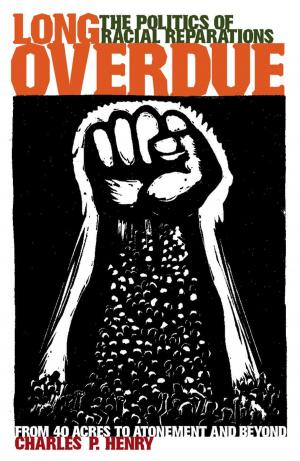Killing with Prejudice
Institutionalized Racism in American Capital Punishment
Nonfiction, Reference & Language, Law, Criminal law, Social & Cultural Studies, Social Science, Discrimination & Race Relations| Author: | R.J. Maratea | ISBN: | 9781479896394 |
| Publisher: | NYU Press | Publication: | March 26, 2019 |
| Imprint: | NYU Press | Language: | English |
| Author: | R.J. Maratea |
| ISBN: | 9781479896394 |
| Publisher: | NYU Press |
| Publication: | March 26, 2019 |
| Imprint: | NYU Press |
| Language: | English |
A history of the McCleskey v. Kemp Supreme Court ruling that effectively condoned racism in capital cases
In 1978 Warren McCleskey, a black man, killed a white police officer in Georgia. He was convicted by a jury of 11 whites and 1 African American, and was sentenced to death. Although McCleskey’s lawyers were able to prove that Georgia courts applied the death penalty to blacks who killed whites four times as often as when the victim was black, the Supreme Court upheld the death sentence in McCleskey v.Kemp, thus institutionalizing the idea that racial bias was acceptable in the capital punishment system. After a thirteen-year legal journey, McCleskey was executed in 1991. In Killing with Prejudice, R.J. Maratea chronicles the entire litigation process which culminated in what has been called “the Dred Scott decision of our time.” Ultimately, the Supreme Court chose to overlook compelling empirical evidence that revealed the discriminatory manner in which the assailants of African Americans are systematically undercharged and the aggressors of white victims are far more likely to receive a death sentence. He draws a clear line from the lynchings of the Jim Crow era to the contemporary acceptance of the death penalty and the problem of mass incarceration today.
The McCleskey decision underscores the racial, socioeconomic, and gender disparities in modern American capital punishment, and the case is fundamental to understanding how the death penalty functions for the defendant, victims, and within the American justice system as a whole.
A history of the McCleskey v. Kemp Supreme Court ruling that effectively condoned racism in capital cases
In 1978 Warren McCleskey, a black man, killed a white police officer in Georgia. He was convicted by a jury of 11 whites and 1 African American, and was sentenced to death. Although McCleskey’s lawyers were able to prove that Georgia courts applied the death penalty to blacks who killed whites four times as often as when the victim was black, the Supreme Court upheld the death sentence in McCleskey v.Kemp, thus institutionalizing the idea that racial bias was acceptable in the capital punishment system. After a thirteen-year legal journey, McCleskey was executed in 1991. In Killing with Prejudice, R.J. Maratea chronicles the entire litigation process which culminated in what has been called “the Dred Scott decision of our time.” Ultimately, the Supreme Court chose to overlook compelling empirical evidence that revealed the discriminatory manner in which the assailants of African Americans are systematically undercharged and the aggressors of white victims are far more likely to receive a death sentence. He draws a clear line from the lynchings of the Jim Crow era to the contemporary acceptance of the death penalty and the problem of mass incarceration today.
The McCleskey decision underscores the racial, socioeconomic, and gender disparities in modern American capital punishment, and the case is fundamental to understanding how the death penalty functions for the defendant, victims, and within the American justice system as a whole.















